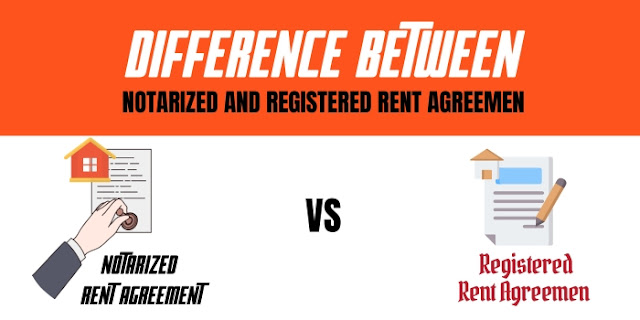Who is Eligible for Trademark Registration?
Trademark registration is a crucial step for businesses and individuals looking to protect their brand identity, logos, slogans, or other distinctive signs that distinguish their goods or services from others in the market. A registered trademark not only safeguards your intellectual property but also enhances your brand’s credibility and value. However, not everyone is eligible to register a trademark. Understanding who can apply for trademark registration is essential to ensure compliance with legal requirements and to avoid potential disputes.
What is a Trademark?
A trademark is a recognizable sign, design, or expression that identifies products or services of a particular source from those of others. It can include words, logos, symbols, colors, sounds, or even a combination of these elements. Trademarks help consumers distinguish between different brands and ensure that businesses can protect their unique identity in the marketplace.
Who is Eligible to Register a Trademark?
Trademark registration is open to a wide range of entities, including individuals, businesses, and organizations. Below are the key categories of eligible applicants:
1. Individuals
Individuals who are engaged in business activities, such as sole proprietors, freelancers, or entrepreneurs, are eligible to register a trademark. Whether you are selling products, offering services, or planning to launch a brand in the future, you can apply for trademark protection. For example, an artist selling handmade crafts or a freelance graphic designer offering branding services can register a trademark to protect their unique brand identity.
2. Business Entities
Businesses of all sizes, including startups, small and medium enterprises (SMEs), and large corporations, can register trademarks. This includes:
Partnerships: A partnership firm can register a trademark in the name of the business.
Limited Liability Companies (LLCs): LLCs can apply for trademark registration to protect their brand name, logo, or other identifiers.
Corporations: Both private and public companies can register trademarks for their products, services, or corporate branding.
3. Non-Profit Organizations
Non-profit organizations, charities, and NGOs are also eligible to register trademarks. These entities often use trademarks to protect their logos, names, or slogans associated with their mission or campaigns. For example, a non-profit organization running a specific program or initiative can trademark its name to prevent misuse by others.
4. Joint Owners
In some cases, two or more individuals or entities may jointly own a trademark. This is common in collaborations, partnerships, or co-branding efforts. Joint owners must clearly define their rights and responsibilities in the trademark application to avoid future disputes.
5. Foreign Applicants
Foreign individuals or businesses can also register trademarks in a country where they wish to operate or expand their brand. This is typically done through international treaties like the Madrid Protocol, which allows for streamlined trademark registration across multiple countries. However, foreign applicants may need to appoint a local representative or agent to handle the application process in some jurisdictions.
6. Government Entities
In certain cases, government agencies or departments may register trademarks to protect symbols, logos, or names associated with public services or initiatives. For example, a government tourism board might trademark a logo used to promote a specific destination.
Key Requirements for Trademark Eligibility
While the above entities are eligible to register trademarks, there are certain requirements that must be met to ensure a successful application:
Distinctiveness: The trademark must be unique and capable of distinguishing your goods or services from those of others. Generic or descriptive terms are generally not eligible for trademark protection unless they have acquired distinctiveness through extensive use.
Non-Conflict with Existing Trademarks: The proposed trademark must not conflict with existing registered trademarks or pending applications. Conducting a thorough trademark search before applying is essential to avoid rejection or legal disputes.
Use or Intent to Use: In many jurisdictions, applicants must either be using the trademark in commerce or have a bona fide intention to use it in the future. Some countries require proof of use before granting registration, while others allow registration based on intent to use.
Compliance with Legal Standards: The trademark must not violate legal standards, such as being offensive, misleading, or containing prohibited symbols (e.g., national flags or official emblems).
Benefits of Trademark Registration
Registering a trademark offers numerous benefits, including:
Exclusive Rights: You gain exclusive rights to use the trademark in connection with your goods or services.
Legal Protection: Trademark registration provides legal grounds to take action against infringement or unauthorized use.
Brand Recognition: A registered trademark enhances your brand’s credibility and helps build trust with consumers.
Asset Value: Trademarks can become valuable intellectual property assets that can be licensed, sold, or used as collateral.
Conclusion
Trademark registration is a powerful tool for protecting your brand and ensuring its long-term success. Eligibility for trademark registration is broad, encompassing individuals, businesses, non-profits, joint owners, foreign applicants, and even government entities. However, it is essential to meet the legal requirements, such as distinctiveness, non-conflict with existing trademarks, and compliance with legal standards. By securing a registered trademark, you can safeguard your brand’s identity, build consumer trust, and create a strong foundation for growth in the competitive marketplace. Whether you are an individual entrepreneur or a multinational corporation, trademark registration is a vital step in securing your place in the business world.



%20(18).jpg)